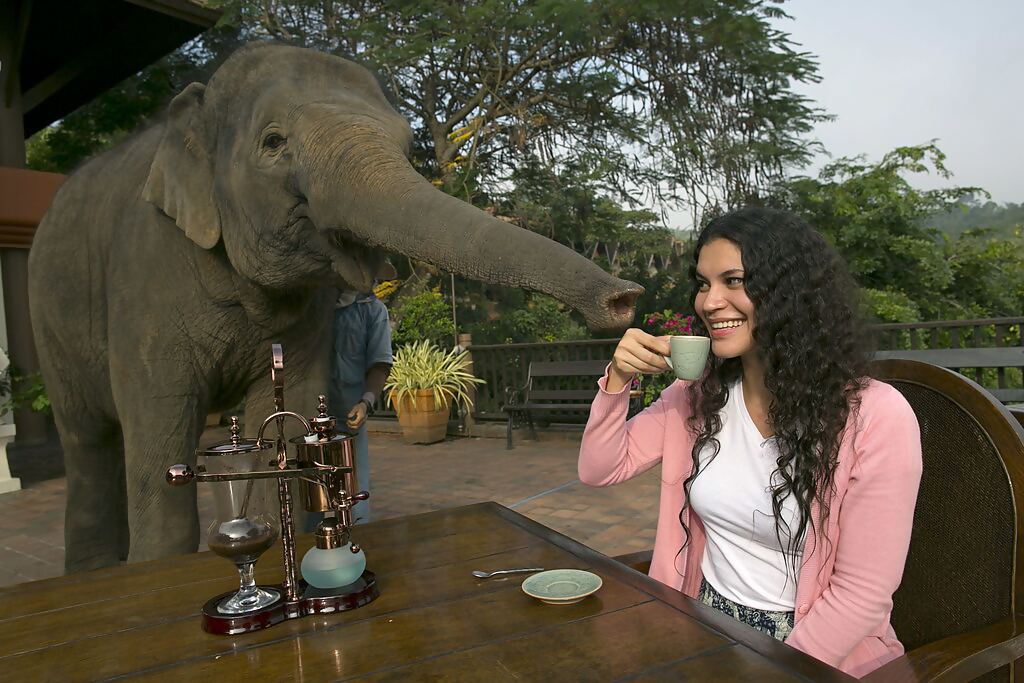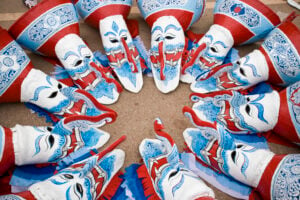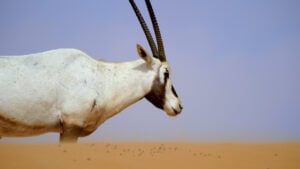This coffee passes through elephants and is made in the Golden Triangle region, world-renowned for its opium production. Neither has stopped it from becoming one of the most expensive coffees in the world, and the luxury product has elephant conservation at its core.

The name is Black Ivory Coffee and over the course of the last couple of decades, it has grown exponentially. Fetching nearly £2,500 per kilogram, and $1,400 per pound, it is sold directly to upmarket restaurants and hotels around the world, as well as in limited quantities online.
Eye-watering prices are a result of not just the unique product, but also the limited quantity of it. According to National Geographic, it is also now the world’s “rarest coffee,” with only around 500 pounds of it produced in total in 2023.
The coffee itself is similar to the famous Kopi Luwak. It made the news years ago when it fetched high prices and was fermented by passing through a civet. The demand for Kopi Luwak caused the mistreatment of civets, as they were pumped with coffee cherries and many ended up malnourished. Black Ivory Coffee, with its herbivore elephants, not only made things a little larger but make sure of the ethical treatment of the animals.

Speaking to NPR, the company’s founder, Blake Dinkin, said: “They eat a lot of grass and a lot of green, leafy matter. A herbivore, to break that down, utilizes fermentation to break down that cellulose. Fermentation is great for things like wine or beer or coffee, because it brings out the sugar in the bean, and it helps impart the fruit from the coffee pulp into the bean.”
In the specific case of coffee, the fermentation can reduce the bitterness we so often associate with the drink.
Read More: Kopi Joss | Indonesia’s unique, sizzling charcoal coffee
“I want people to taste the bean, not just the roast,” Dinkin continued. “The aroma is floral and chocolate; the taste is chocolate malt with a bit of cherry; there’s no bitterness; and it’s very soft, like tea. So it’s kind of like a cross between coffee and tea.”
Elephants and civets aren’t the only animals whose poo is used to brew coffee. In Brazil, there’s a brand that uses the feces of the jacu, an endangered South American bird. There is also a company that uses monkey-chewed, but not digested, coffee beans.

“It is a mistake to lump all coffee processed via an animal as the same just as one would not lump all grapes the same to make wine,” Dinkin said. “Authenticity is another important factor. We video every feeding to ensure the elephants are happy and that the coffee cherries are actually consumed.”
The chances are that Black Ivory Coffee will remain a mysterious unknown to most of us. Still, unlike other brands, at least the vast cost is used to help the animals central to this unique product.
Like coffee? Check out five more unique coffees in our video below.





